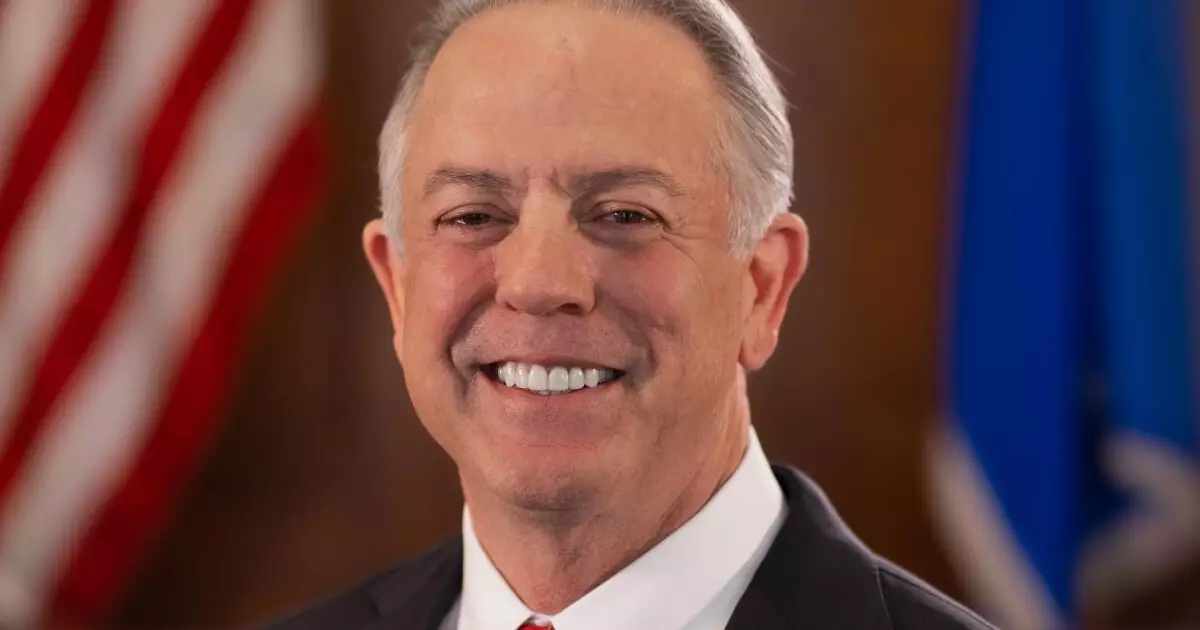As Nevada prepares for its legislative session commencing on February 3, 2023, the appointment of a new budget chief by Governor Joe Lombardo has elicited scrutiny from various political factions. Lombardo, the state’s first Republican governor in a decade, has argued for a substantial budget of $12.7 billion. However, his proposal is marred by predictions of a considerable budget deficit amounting to $335 million. Known as the “Silver State,” Nevada’s constitutional requirement to enact a balanced budget makes this predicament particularly contentious and highlights the growing tensions between the Republican administration and the Democratic-controlled legislature.
Senate Majority Leader Nicole Cannizzaro, a stalwart in the Democratic Party, voiced her discontent, emphasizing that the discrepancies within Lombardo’s budget proposal are alarming. Her experience in the state Senate encapsulates concerns that the governor’s plans might lead to compounded state financial challenges. Cannizzaro’s remarks underscore a belief that when a governor provides a budget, it should be a concise reflection of fiscal responsibility—an expectation that Lombardo’s budget evidently does not satisfy.
In a strategic move employed just days before the lawmakers gather to discuss budgetary matters, Lombardo promoted Tiffany Greenameyer to the head of the Office of Finance, stepping in to replace Amy Stephenson. This transition is not merely a departmental reshuffle; it is an essential reaction to the forthcoming budgetary discourse that needs robust and expert oversight. Greenameyer, who brings over 20 years of experience in high-level state roles, is considered a vital asset. Lombardo’s confidence in her expertise reflects an attempt to stabilize financial governance amidst turbulent political waters.
Greenameyer’s previous role as deputy director of fiscal services at the Nevada Department of Health and Human Services lends credibility to her position. Her ability to navigate the intricacies of budget development and audit processes will be vital, especially considering the looming deadline of June 2 for budget approval. This necessitates a meticulous approach to ensure that the state meets its legal obligations while striving to address diverse community needs.
Lombardo’s proposed budget marks a 9% increase from the prior fiscal plan and aims at permanent increments in teacher salaries, healthcare agency reforms, enhanced crime-fighting resources, and significant investment in housing—totaling a commendable $1 billion. Such proposals suggest an ambitious vision for improving the quality of life in Nevada. However, beneath these progressive aspirations lurks the specter of financial shortfalls that will require pragmatic solutions.
The political landscape of Nevada remains complex. Democrats’ retention of legislative supremacy continues a pattern of divided governance that has characterized Nevada since Lombardo’s 2022 election. As both sides grapple over the budget proposals, the challenge lies in finding common ground. The implications of tackling this budget are far-reaching; lawmakers must deliberate on how the increased spending aligns with sustainable fiscal practices amidst an economy that has seen unprecedented upheaval.
With sessions fast approaching, it is crucial for legislators to engage in constructive dialogue aimed at reconciling the governor’s budget proposals with the realities of the state’s financial health. This is particularly important given that Nevada’s general obligation bonds hold an AA-plus rating—an indicator of economic reliability that could be jeopardized by fiscal mismanagement and imprudent spending.
The budgetary process in Nevada is unique, operating on a two-year cycle with a part-time legislature. Given the structure, it is imperative that lawmakers navigate this delicate balance carefully. With separate bills required for significant priorities like education funding, agency support, and capital improvement initiatives, negotiations must foster a climate of collaboration rather than confrontation. This approach could not only safeguard fiscal integrity but also ensure that all Nevadans benefit from well-judged financial decisions.
While Governor Lombardo’s ambitious budget proposal seeks to address fundamental state needs, the underlying financial challenges necessitate a concerted effort from both parties. Only through transparency, negotiation, and a shared commitment to sound fiscal policy can Nevada hope to emerge from this budget discussions stronger and more unified.

